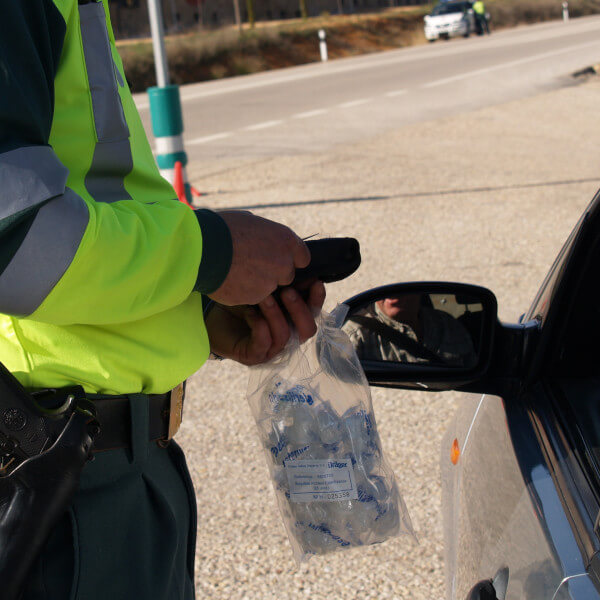Maine OUI laws are some of the strictest in the country, with severe consequences for those who drive while impaired. A crucial component of Maine’s OUI legal framework is the Maine implied consent law, which governs a driver’s obligation to submit to chemical testing if suspected of impaired driving. The Maine implied consent law for OUI plays a significant role in OUI cases, influencing both the prosecution’s evidence and the defense’s legal strategies.
Understanding Maine’s implied consent law is critical for drivers, as violations can result in harsh penalties even before a conviction for OUI. If you’ve been charged with an OUI in Maine, call 1-888-839-4384 or use our online contact form to get connected with a top-rated Maine OUI lawyer near you.
Drunk Driving Defense has some of the best OUI lawyers in Maine on our roster, so start fighting your charges today!
What Is Maine’s Implied Consent Law?
Maine’s implied consent law is laid out in Title 29-A, Section 2521 of the Maine Revised Statutes. This OUI implied consent law establishes that any person operating a motor vehicle within the state is automatically deemed to have given consent to chemical testing (breath, blood, or urine) to determine blood alcohol content (BAC) or the presence of drugs if law enforcement suspects the driver of being under the influence.
Under Maine OUI implied consent law:
- Law enforcement officers may administer a chemical test if they have probable cause to believe a driver is operating under the influence.
- A driver cannot legally refuse a test without consequences, even if they are not ultimately convicted of OUI.
- Test refusal results in automatic administrative penalties, separate from criminal penalties related to an OUI conviction.
Penalties for Violating Maine’s Implied Consent Law
Refusing to submit to a chemical test in Maine has immediate and severe consequences. Some of the penalties for OUI under Maine’s implied consent law include:
- License Suspension
- First Refusal: 275-day suspension.
- Second Refusal: 18-month suspension.
- Third Refusal: 4-year suspension.
- Fourth Refusal: 6-year suspension.
- Increased Criminal Penalties
- A test refusal can be used as evidence against the driver in an OUI case.
- If convicted of OUI, the refusal leads to harsher penalties, including extended jail time and higher fines.
- No Eligibility for Work-Restricted Licenses
- A driver who refuses a chemical test is ineligible for a work-restricted license during the suspension period.

How Maine’s Implied Consent Law Is Used in Court
The prosecution can leverage an OUI implied consent refusal as a key piece of evidence in court. Here’s how:
Prosecution Argument: Consciousness of Guilt
When a driver refuses OUI testing, prosecutors often argue that the refusal demonstrates a consciousness of guilt; suggesting the driver knew they were over the legal limit and refused testing to avoid incrimination.
Use of Refusal as Evidence
Courts allow a test refusal to be admitted as evidence in an OUI trial. Prosecutors may use this refusal to persuade a jury that the defendant was likely intoxicated.
Jury Instructions on Refusal
Judges may instruct the jury that they can infer intoxication from the refusal to take an implied consent OUI test, further strengthening the prosecution’s case.
Legal Strategies For Defending an OUI Charge Based on Implied Consent
Facing an OUI charge in Maine, especially when refusal of a chemical test is involved, requires strong legal strategies. Below are key defenses used to challenge OUI charges that are based on Maine implied consent law:
1. Challenging the Legality of the Stop
The Fourth Amendment protects drivers from unreasonable searches and seizures. If law enforcement lacked reasonable suspicion or probable cause for the traffic stop, any evidence (including the refusal) can be challenged and potentially suppressed.
2. Questioning Probable Cause for Testing
The officer must establish probable cause to request a chemical test. If an officer’s observations were insufficient (e.g., lack of clear evidence of impairment), an OUI lawyer can argue that the implied consent request was unlawful.



3. Challenging Officer Misconduct
If the officer failed to properly inform the driver of implied consent law penalties, this can weaken the prosecution’s case. If coercion or misleading statements were involved, the refusal might be invalidated in court.
4. Arguing Medical or Physical Limitations
Certain medical conditions (e.g., asthma, anxiety, diabetes) can affect a driver’s ability to perform a breath test or create confusion about the testing process.
A strong OUI defense can introduce medical evidence to show the implied consent test refusal was not intentional but due to legitimate physical limitations.
5. Highlighting Equipment Malfunctions or Procedural Errors
If a breathalyzer was faulty or blood sample mishandled, a defense attorney can argue that the test results are unreliable.
Similarly, improper chain of custody procedures can discredit evidence used by the prosecution.
6. Challenging the Use of Refusal as Evidence
An experienced OUI lawyer may argue that refusing an implied consent for OUI test does not necessarily indicate intoxication but could stem from fear, misunderstanding, or distrust of law enforcement. Cross-examining the officer’s testimony to cast doubt on why the driver refused testing can shift the jury’s perception.
Get Help Fighting The Maine Implied Consent Law For OUI Today!
Maine’s implied consent law significantly impacts OUI cases, as it mandates drivers suspected of impairment to submit to chemical testing. Refusing to take a test results in immediate administrative penalties and strengthens the prosecution’s case in court by allowing refusal to be used as evidence of guilt.
However, drivers facing OUI charges based on implied consent refusals still have viable defense strategies. Challenging the legality of the traffic stop, questioning probable cause, exposing officer misconduct, or demonstrating medical limitations can weaken the prosecution’s case.
For those accused of OUI in Maine, securing a knowledgeable OUI defense lawyer is crucial. A skilled attorney can evaluate the circumstances of the stop, the arrest process, and the implied consent warning to build a strong defense and potentially reduce or dismiss charges.
If you are facing an OUI charge in Maine, consult with a legal professional to understand your rights and explore defense options that best suit your case.



If you’ve been charged with an OUI in Maine, call 1-888-839-4384 today to speak with an experienced Maine OUI lawyer who can help you fight an OUI charge and protect your rights!
More Maine Implied Consent OUI Resources
If you’d like to learn more about Maine’s implied consent law and how that can affect an OUI case, read some of our informative articles below. We explore multiple aspects of OUI charges in Maine so that you can better navigate the oftentimes confusing legal landscape.

